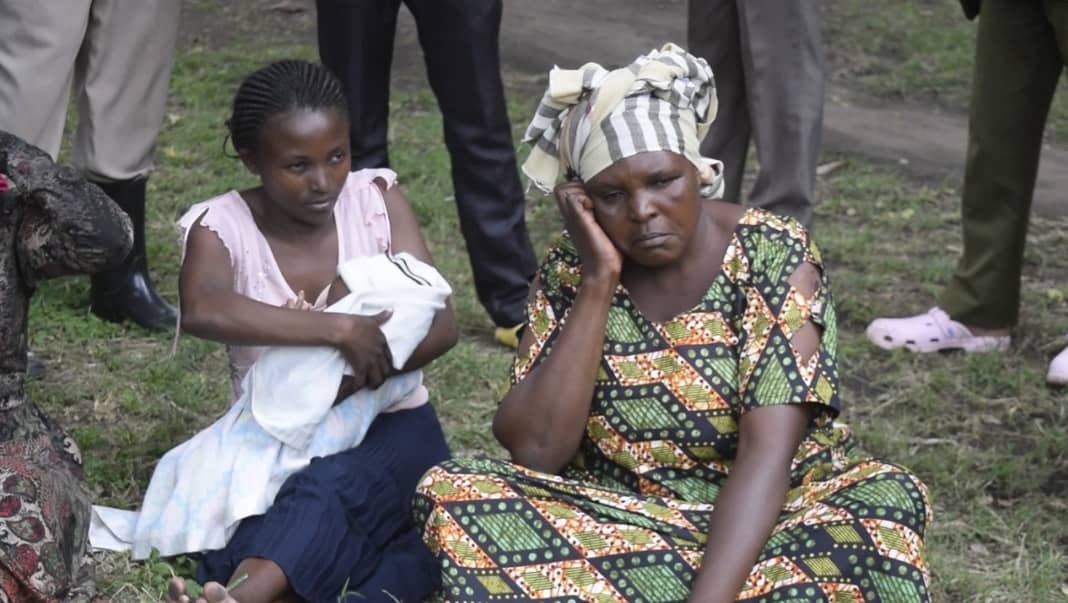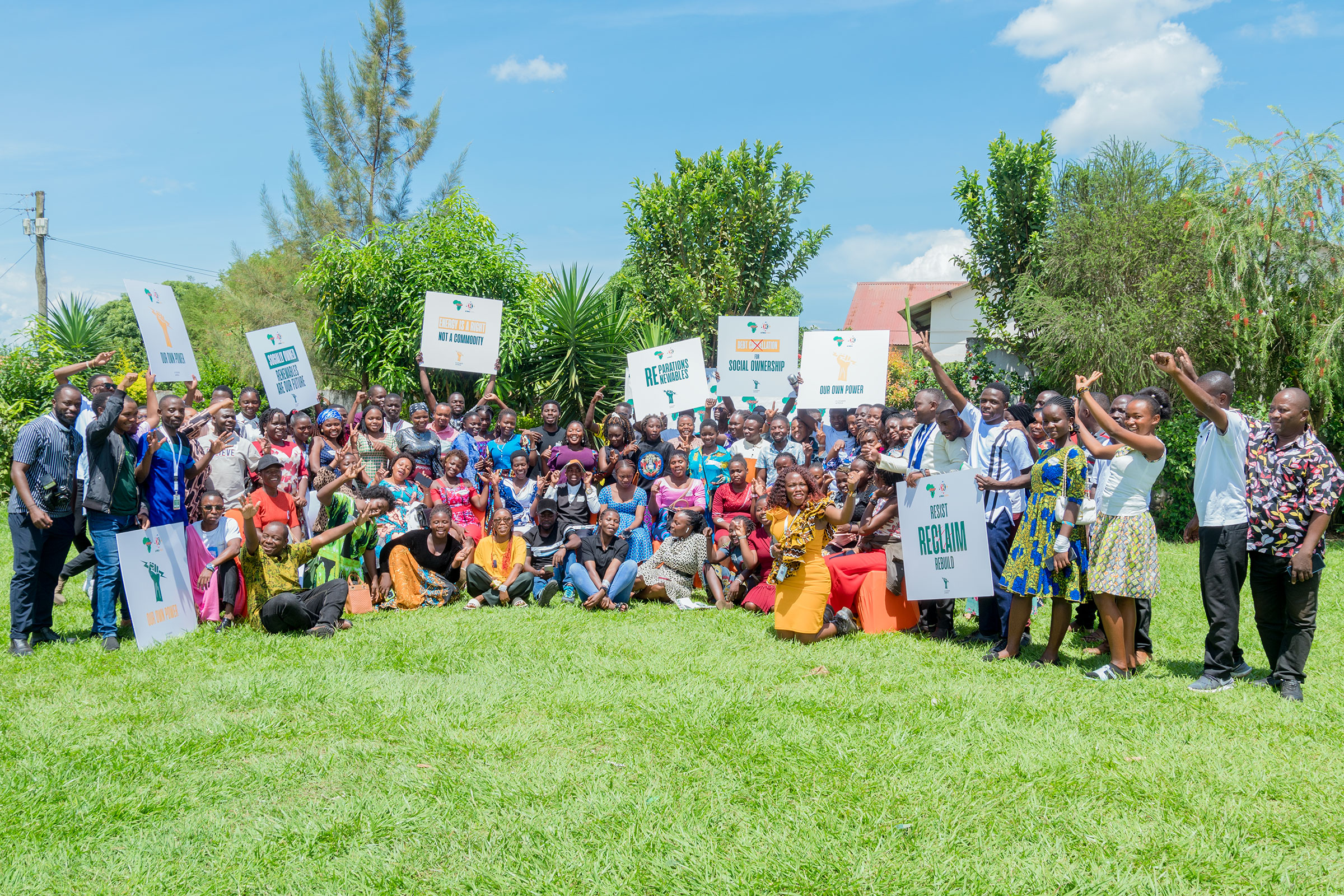In Uganda, where freedom of expression and peaceful assembly are enshrined in the constitution, 11 young environmental activists remain behind bars not for committing violence, not for inciting unrest, but for peacefully delivering a petition to Kenya Commercial Bank (KCB) Uganda. Their only intention was to challenge the bank’s role in financing the East African Crude Oil Pipeline (EACOP), a project that threatens ecosystems, displaces communities, and exacerbates the climate crisis. Instead of receiving their message, these young people were deceptively led into the basement of the bank and handed over to waiting police officers who arrested them on charges of criminal trespass.This arrest, and the subsequent prolonged detention of the activists, raises serious concerns about the shrinking civic space in Uganda and the increasing repression of youth-led activism. The government’s response to peaceful protest especially when it challenges powerful corporate interests has become increasingly punitive. The case of these 11 EACOP activists illustrates how dissent is being criminalised, and how constitutional rights are being trampled under the guise of law enforcement.
On April 23, 2025, a group of young Ugandans arrived at KCB Bank’s offices in Kampala armed with nothing more than a well-researched petition. They had gathered signatures, compiled scientific evidence, and prepared arguments to show how the EACOP pipeline poses grave threats to biodiversity, water resources, agricultural land, and human health. Their demand was simple: for KCB Bank to stop funding this destructive project.
Instead of engaging with their concerns or accepting the petition, the bank staff misled the activists by directing them to the basement under false pretenses. There, they were immediately handed over to uniformed police officers and arrested. No effort was made to understand their cause. No dialogue took place but just arrests swift, coordinated, and seemingly premeditated.
The charge brought against them criminal trespass is a minor offense under Ugandan law. It typically carries a fine or a short jail term, if any. Yet instead of releasing them on bail or even issuing a summons, the court ordered them to be remanded in Luzira Prison, where they have remained ever since.
Denial of Bail Despite Legal Entitlement
Under Ugandan law, anyone held in remand for more than 70 days without trial is entitled to mandatory bail. These activists have now exceeded that legal limit. Yet, despite multiple applications and appeals, the Nakawa Chief Magistrate’s Court has systematically denied them freedom.
According to Eva Kakuma, a lawyer representing the activists under the Centre for Citizens Conserving Environment & Management (CECIC):
“We have applied for bail at least four times on April 25, May 8, May 27, and again on July 2, 2025 yet all applications have been rejected. Each time, the court ignored the minor nature of the trespass charge and the absence of any flight risk.”
Each rejection of bail has been accompanied by procedural delays that suggest a deliberate attempt to prolong the activists’ detention. On May 27, the hearing was postponed because magistrates and prosecutors were attending a symposium. On June 12, the case file mysteriously disappeared from court, halting proceedings once again. And on July 2, the presiding magistrate was absent despite the presence of other available judicial officers and the court refused to proceed. These repeated adjournments are not coincidences; they are part of a pattern designed to silence dissent and deter others from participating in similar actions. The activists have not been charged with anything beyond trespassing, which does not justify such an extended period of incarceration. There is no credible reason to believe they pose a threat to public safety, nor is there any indication that they would flee justice.
The arrest of these 11 activists is not an isolated incident. It is part of a broader crackdown on youth-led environmental movements across Uganda. At least 81 activists have been detained in relation to protests against EACOP, many of them students and grassroots organizers. Others are still going through legal processes in various courts around the country.
Eldard Mwahulhwa, a human rights lawyer with CECIC, notes that:
“These 11 activists are part of a growing movement of environmental defenders across Uganda who are standing up against destructive projects like EACOP. Many of them are young people who see themselves as the future custodians of the planet and are willing to speak out against harmful development agendas.”
The government’s heavy-handed approach toward these activists sends a chilling message: if you challenge corporate-backed infrastructure projects, even peacefully, you will face consequences. But make no mistake this is not justice. This is repression disguised as law enforcement.
Let us be clear, the youth did not break any laws that warrant imprisonment and they did not engage in violence. They did not damage property nor threaten national security. In fact, they did exactly what citizens are encouraged to do they used democratic channels to express concern about a major development project that affects their lives and environment.
The East African Crude Oil Pipeline, backed by TotalEnergies and the governments of Uganda and Tanzania, is one of the largest fossil fuel projects in Africa. It involves the construction of a 1,443-kilometer underground pipeline from western Uganda to the port of Tanga in Tanzania. While the project promises economic benefits, it comes at a high cost: displacement of thousands of families, destruction of wetlands and forests, pollution of water sources, and irreversible damage to the Lake Albert ecosystem. Moreover, the pipeline contributes to global carbon emissions at a time when the world is supposed to be transitioning away from fossil fuels to meet climate targets. Scientists warn that continuing to invest in oil extraction is incompatible with limiting global warming to 1.5°C above pre-industrial levels.
Given these risks, it is not surprising that concerned citizens including students, farmers, and civil society organizations have raised objections. The activists arrested at KCB Bank were simply calling on the financial sector to take responsibility for its role in enabling environmentally harmful projects.Their arrest and continued detention send a dangerous precedent: that speaking truth to power is now a punishable offense.
Financial institutions like KCB Bank play a critical role in shaping the direction of development in Africa. By choosing which projects to fund, they indirectly determine who benefits and who suffers from large-scale infrastructure initiatives.The activists’ petition urged KCB Bank to align its lending policies with international standards on environmental sustainability and human rights. They asked the bank to conduct thorough due diligence before approving financing for projects with significant ecological and social impacts.But instead of engaging in dialogue, the bank chose to involve law enforcement, leading to the arrests of those raising legitimate concerns. This response reveals a troubling trend: corporations and financial institutions using the state apparatus to silence critics rather than addressing substantive issues.
Civil society organizations, including the Centre for Citizens Conserving Environment & Management (CECIC), have strongly condemned the continued detention of the 11 activists. As a civil society organization committed to defending civic space and promoting environmental justice, CECIC sees this case as emblematic of the broader crackdown on youth activism in Uganda today.
A representative from CECIC stated:
They added:
“If there is no credible reason to hold them, then there is no reason to keep them behind bars. Continuing to detain them is not just an injustice — it is a violation of fundamental human rights.”
The plight of these 11 activists has drawn attention beyond Uganda’s borders. International human rights groups, environmental networks, and youth climate coalitions have expressed alarm over the use of excessive force against peaceful protesters. Statements from organisations such as Amnesty International, Global Witness, and Fridays for Future have highlighted the dangers of criminalising environmental activism and warned that such tactics undermine democratic freedoms and the fight for climate justice. Uganda’s judiciary must uphold the rule of law and ensure that the constitutional rights of all citizens especially the most vulnerable are protected. The prolonged detention of these young people is a stain on Uganda’s human rights record and a betrayal of democratic values.
The case of the 11 EACOP activists is a stark reminder of the risks faced by environmental defenders in Uganda. As long as peaceful activism is met with arrest and prolonged detention, the principles of justice, freedom of expression, and civic participation remain under threat. The government must answer one simple question: what crime did these young people commit? Did they incite violence? Did they damage property? Did they threaten national security? The answer to all these questions is no. They simply dared to speak truth to power.
Justice delayed is justice denied — and in this case, justice has been denied for far too long.



